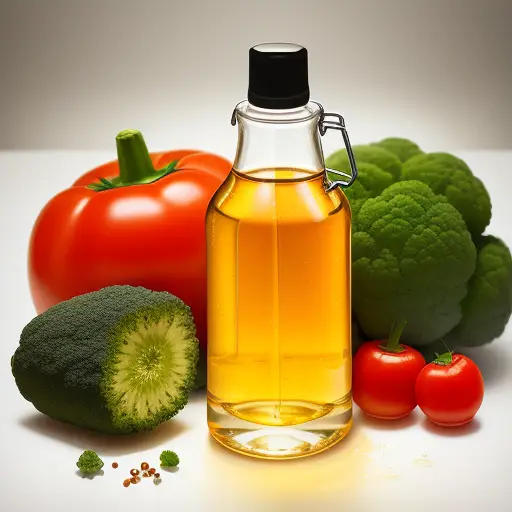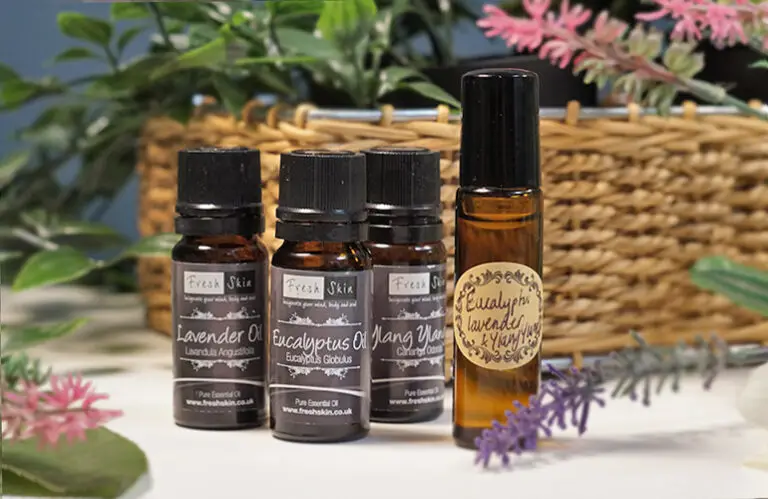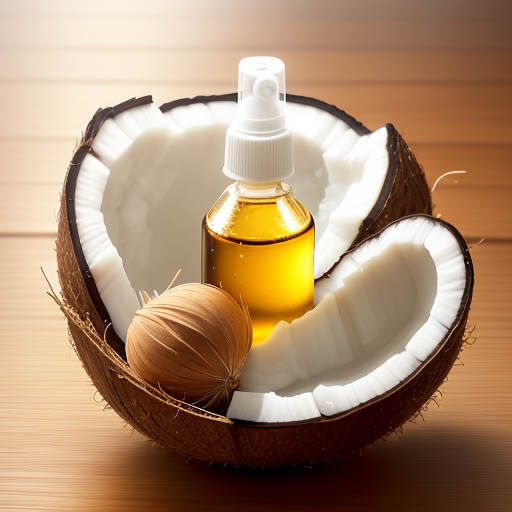Cooking oils are an essential ingredient in every kitchen, and their versatility makes them a go-to for many cooking tasks. One common question that arises is whether it is possible to use vegetable oil in a spray bottle for cooking purposes. In this article, we will delve into the reasons why people opt for using vegetable oil in a spray bottle and explore its safety considerations.
Why use vegetable oil in a spray bottle for cooking?
Vegetable oil in a spray bottle: Using vegetable oil in a spray bottle has gained popularity for several reasons. Firstly, it provides a convenient way to evenly coat pans and baking dishes, preventing food from sticking. This can be especially helpful when grilling, sautéing, or baking. Additionally, using a spray bottle allows for better control over the amount of oil being used, promoting healthier cooking habits. It also helps reduce the overall amount of oil required for cooking, making it a cost-effective option.
Furthermore, spraying oil onto vegetables, meats, and other ingredients before grilling or roasting can help enhance flavors and promote even browning. It also adds a touch of moisture to prevent foods from drying out during cooking. Overall, using a spray bottle for vegetable oil can contribute to a more controlled and efficient cooking experience.
Is it safe to put vegetable oil in a spray bottle?
Safety considerations: When it comes to safety, it is crucial to choose the right spray bottle and use it appropriately when filling it with vegetable oil. The bottle should be specifically designed for food use and made from food-grade materials to ensure that it is safe for contact with cooking oils. It is essential to check the bottle’s manufacturer guidelines to confirm its suitability for use with vegetable oil.
Additionally, it is recommended to thoroughly clean the spray bottle after each use to prevent the buildup of oil residue and potential contamination. Regular maintenance ensures the longevity and reliability of the spray bottle, safeguarding against any safety risks.
As with any cooking oil, it is important to use vegetable oil in moderation. While it can be an alternative to other cooking methods, it should not replace a well-rounded and balanced diet. Consultation with a healthcare professional or nutritionist is always advised to determine the best approach for incorporating cooking oils into a healthy eating plan.
Using vegetable oil in a spray bottle can be a convenient and efficient way to enhance your cooking experience. However, it is essential to choose a suitable spray bottle designed for food use and follow proper maintenance guidelines to ensure safety. Enjoy the benefits of even distribution, controlled portions, and enhanced flavors as you explore the possibilities of cooking with vegetable oil in a spray bottle.
Benefits of Using a Spray Bottle for Vegetable Oil
Using a spray bottle for vegetable oil can bring numerous benefits to your cooking routine. Let’s take a closer look at some of these advantages.
Even Distribution of Oil
One of the primary benefits of using a spray bottle for vegetable oil is that it allows for an even distribution of oil. When you pour oil directly from a bottle onto a pan or a dish, there is a higher chance of uneven distribution, leading to certain areas being saturated with oil while others remain dry. However, when using a spray bottle, you can easily control the amount and spread the oil evenly across the surface, resulting in a more consistent cooking experience.
Controlled Amount of Oil
Using a spray bottle grants you better control over the amount of oil you use. It’s easier to apply a light mist of oil with a spray bottle, allowing you to add just the right amount to your dishes. This can be particularly beneficial if you are watching your calorie intake or trying to reduce the amount of oil in your cooking.
Healthier Cooking Option
Using a spray bottle for vegetable oil can be a healthier cooking option. By using a spray bottle, you can minimize the quantity of oil used in your cooking, leading to lower overall fat content in your meals. This is especially valuable for dishes that require some oil but can still be prepared with less. Additionally, using a spray bottle can help you reduce the consumption of unhealthy aerosol sprays that often contain additives.
Overall, using a spray bottle for vegetable oil provides an even distribution of oil, better control over the amount used, and a healthier cooking option. So, if you’re looking for a convenient and efficient way to apply oil to your dishes, using a spray bottle can be a great choice.
Be sure to check out the oil sprayer options available in the market today to find the one that suits your needs best.
Choosing the Right Spray Bottle for Vegetable Oil
When it comes to cooking and baking, using a spray bottle can be a convenient way to apply vegetable oil to your dishes. The question is, can you put vegetable oil in just any spray bottle? The answer is not as straightforward as you might think.
Material and Safety Considerations
It is important to choose a spray bottle made of food-safe materials when using it for vegetable oil. Look for bottles that are labeled as BPA-free and made of high-quality materials such as food-grade plastic or stainless steel. These materials are less likely to react with the oil and leach harmful substances into your food.
It is also crucial to consider the transparency of the spray bottle as it allows you to see how much oil is left in the container. This can be useful for refilling and ensuring you never run out in the middle of cooking.
Spray Nozzle Design
The spray nozzle design can greatly affect how well the oil is dispersed and the spray pattern it creates. Look for spray bottles that have a fine mist setting, as this will help distribute the oil evenly and reduce the risk of oversaturating your food. Some spray bottles also offer adjustable nozzle settings, allowing you to customize the spray pattern according to your cooking needs.
Here’s a table summarizing the considerations when choosing a spray bottle for vegetable oil:
| Consideration | Recommendation |
|---|---|
| Material | Food-grade plastic or stainless steel |
| Safety | BPA-free |
| Transparency | Clear or transparent |
| Spray Nozzle Design | Fine mist setting and adjustable nozzle settings |
So, while you can put vegetable oil in a spray bottle, it is essential to choose the right one to ensure food safety and convenience in your cooking endeavors.
How to Put Vegetable Oil in a Spray Bottle
If you’ve ever run out of cooking spray and wondered if you could use a spray bottle with vegetable oil instead, you’re not alone. Many people find it helpful to have a spray bottle filled with vegetable oil for convenience and portion control. Here’s a step-by-step guide on how to put vegetable oil in a spray bottle.
Preparation Steps
- Choose the right spray bottle: Look for a spray bottle that is specifically designed for oil. These bottles typically have a nozzle that provides a fine mist, which helps to evenly distribute the oil. Avoid using spray bottles that are made for other liquids, as they may not work well with oil.
- Clean the spray bottle: Before transferring the vegetable oil, make sure the spray bottle is clean. Wash it with warm, soapy water and rinse it thoroughly to remove any residue or impurities.
- Remove labels and stickers: If the spray bottle still has labels or stickers on it, carefully remove them. Residue from these labels can clog the spray nozzle, so it’s essential to have a clean surface.
Transferring the Oil
- Prepare the oil: Measure out the desired amount of vegetable oil that you want to put in the spray bottle. It’s recommended to start with a small amount, such as 1/4 cup, and adjust as needed.
- Use a funnel: To avoid spills and mess, use a funnel to transfer the oil into the spray bottle. Place the funnel in the bottle’s opening, and slowly pour the oil into the funnel.
- Fill the spray bottle: Continue pouring the oil into the spray bottle until it reaches the desired level. Be careful not to overfill the bottle, as it may cause leaks or make it difficult to use.
- Secure the spray bottle: Once the oil is in the bottle, make sure the spray bottle is securely closed. Double-check that the nozzle is tightly sealed to prevent any leaks.
Now you have a spray bottle filled with vegetable oil that you can use for cooking, baking, or any other culinary needs. Just give it a shake before each use to ensure that the oil is properly mixed. Enjoy the convenience of portion control and easy application with your homemade vegetable oil spray bottle.
Remember, using a spray bottle with vegetable oil is a personal choice and may not have the same properties as store-bought cooking spray. Additionally, be mindful of the oil’s smoke point when using it for high-temperature cooking methods.
Storage and Shelf Life of Vegetable Oil in a Spray Bottle
Proper Storage Methods
When it comes to using a spray bottle for vegetable oil, it is important to store it properly to maintain its quality and prevent spoilage. Here are some storage tips to keep in mind:
- Choose the Right Bottle: Make sure to use a spray bottle specifically designed for oils. These bottles typically have a nozzle that allows for easy spraying without clogging.
- Keep it Airtight: It is crucial to store the bottle in an airtight container or seal it tightly to prevent oxygen exposure. Oxygen can cause oxidation, leading to rancidity and a shorter shelf life.
- Avoid Direct Sunlight: Keep the spray bottle away from direct sunlight to minimize heat exposure, which can accelerate spoilage.
- Cool and Dry Storage: Store the bottle in a cool and dry place, away from sources of heat and moisture. Moisture can promote the growth of bacteria and molds, leading to spoilage.
- Label and Date: Always label the spray bottle with its contents and date of purchase or preparation. This will help you keep track of its shelf life and ensure you are using it before it goes bad.
Shelf Life Considerations
The shelf life of vegetable oil in a spray bottle can vary depending on factors such as the type of oil, quality, and storage conditions. Generally, most vegetable oils can last up to a year when stored properly.
However, it is important to note that repeated exposure to air and light can cause the oil to go rancid more quickly. Additionally, if you notice any changes in the oil’s color, odor, or taste, it is best to discard it, as it may indicate spoilage.
It is always a good idea to check the manufacturer’s recommendations for the specific vegetable oil you are using, as they may provide more specific guidance on storage and shelf life.
In conclusion, while storing vegetable oil in a spray bottle can be convenient, proper storage is key to maintain its quality and extend its shelf life. Follow the tips mentioned above, and always use your best judgment when it comes to determining if the oil is still safe to use.
Alternative Oils for Spraying
Avocado Oil
When it comes to using oils in a spray bottle, one common question is whether you can use vegetable oil. While vegetable oil can be used for cooking, it may not be the best option for spraying. Vegetable oil has a higher smoke point, which means it can tolerate higher temperatures without breaking down. However, it tends to be heavier and more viscous, making it less suitable for use in a spray bottle. Instead, there are several alternative oils that you can use for spraying.
One excellent alternative to vegetable oil is avocado oil. It has a high smoke point and a mild flavor, making it suitable for cooking and spraying. Avocado oil is packed with healthy monounsaturated fats and vitamin E, making it a nutritious choice. Its light texture and neutral taste make it ideal for use in a spray bottle, especially when you want to add a touch of flavor to your dishes.
Coconut Oil
Coconut oil is another great option for spraying. It is well-known for its numerous health benefits, including its antimicrobial and anti-inflammatory properties. Coconut oil has a high smoke point and a pleasant aroma, which adds a tropical twist to your recipes. However, it is important to note that coconut oil solidifies at lower temperatures, so it may need to be warmed or room temperature before using it in a spray bottle. Additionally, if you are using coconut oil for spraying, make sure to choose a refined version that does not have a strong coconut flavor.
Grapeseed Oil
Grapeseed oil is a versatile cooking oil that can also be used for spraying. It is derived from the seeds of grapes and has a light, neutral flavor. Grapeseed oil has a high smoke point, which means it can withstand high temperatures without smoking or burning. It is also low in saturated fat and contains beneficial antioxidants, such as vitamin E. Its light texture and mild flavor make it an excellent choice for spraying on salads, stir-fries, or roasted vegetables.
Comparison Table of Alternative Oils for Spraying
Here’s a comparison table of the alternative oils mentioned above:
| Oil | Avocado Oil | Coconut Oil | Grapeseed Oil |
|---|---|---|---|
| Smoke Point | High | High | High |
| Flavor | Mild | Pleasant Aroma | Neutral |
| Nutrition | High in healthy fats and vitamin E | Numerous health benefits, including antimicrobial and anti-inflammatory properties | Low in saturated fat, contains antioxidants |
| Suitable for Spraying? | Yes | Yes | Yes |
| Solidifies at Low Temperatures? | No | Yes | No |
In conclusion, while vegetable oil can be used for cooking, it may not be the best option for spraying. Instead, consider using alternative oils like avocado oil, coconut oil, or grapeseed oil. These oils offer a higher smoke point, distinct flavors, and various health benefits. When choosing an oil for spraying, it’s important to consider factors such as smoke point, flavor, and nutritional value to ensure the best results in your culinary adventures.
Common Mistakes to Avoid
When it comes to cooking and using vegetable oil, one question that often arises is whether it is safe to put vegetable oil in a spray bottle. While it may seem convenient to have a spray bottle to evenly distribute oil, there are a few things to consider before doing so. In this section, we will discuss the common mistakes to avoid when using a spray bottle for vegetable oil.
Overfilling the Spray Bottle
One mistake that many people make when using a spray bottle for vegetable oil is overfilling it. It’s important to remember that the spray bottle needs some air space to create pressure and allow the oil to spray out effectively. If the bottle is filled to the brim with oil, there won’t be enough room for air, which can cause the spray to be inconsistent or not work at all. To avoid this, fill the spray bottle only about two-thirds full, leaving enough room for proper pressure and distribution.
Using Old or Rancid Oil
Another mistake to avoid is using old or rancid oil in a spray bottle. Vegetable oil, like any other cooking oil, can become rancid over time due to exposure to air, light, and heat. Rancid oil not only affects the taste and quality of your food but can also be harmful to your health. Before putting vegetable oil in a spray bottle, make sure it is fresh and has not exceeded its expiration date. If the oil smells off or has a strange taste, it’s best to discard it and use a fresh batch.
To summarize, when using a spray bottle for vegetable oil, it’s crucial to avoid overfilling the bottle, leaving some air space for proper pressure and distribution. Additionally, make sure to use fresh and non-rancid oil to ensure the best taste and quality in your cooking. By following these guidelines, you can safely use vegetable oil in a spray bottle for convenient and efficient cooking.
Conclusion
Summary of Benefits and Tips for Using Vegetable Oil in a Spray Bottle
In conclusion, using vegetable oil in a spray bottle can be a convenient and practical option for various purposes in the kitchen and around the house. Here is a summary of the benefits and tips for utilizing vegetable oil in this form:
- Versatility: Vegetable oil in a spray bottle can be used for cooking, baking, grilling, and even seasoning pans and griddles.
- Healthier Alternative: Compared to store-bought cooking sprays that often contain additives, using vegetable oil allows you to control the ingredients and avoid unnecessary chemicals.
- Cost-effective: Rather than purchasing multiple cooking sprays, having a spray bottle filled with vegetable oil can save you money in the long run.
- Customizable Flavor: You can infuse the vegetable oil with herbs, spices, or garlic to add a personalized touch to your dishes.
- Prevents Food from Sticking: Applying a light coating of vegetable oil to pans, grills, and bakeware can prevent food from sticking and make cleanup easier.
- Easy Storage: The spray bottle allows for convenient storage and dispensing of the vegetable oil.
- Eco-Friendly: By using a refillable spray bottle, you reduce the use of single-use aerosol cans and contribute to sustainability.
It is important to note that while vegetable oil in a spray bottle can be beneficial for certain purposes, it may not be suitable for high-heat cooking methods, such as deep frying. In these cases, it is advisable to use oils with higher smoke points, such as canola or peanut oil.
Before using vegetable oil in a spray bottle, make sure to clean and dry the bottle thoroughly to prevent any contaminants from affecting the oil. Additionally, keep an eye on the expiration date of the oil and replace it if it becomes rancid.
Remember to always store the spray bottle in a cool and dark place to preserve the quality of the oil and prevent it from turning rancid.
By following these tips and considering the benefits, using vegetable oil in a spray bottle can be a practical and healthier option for various cooking and household needs.




